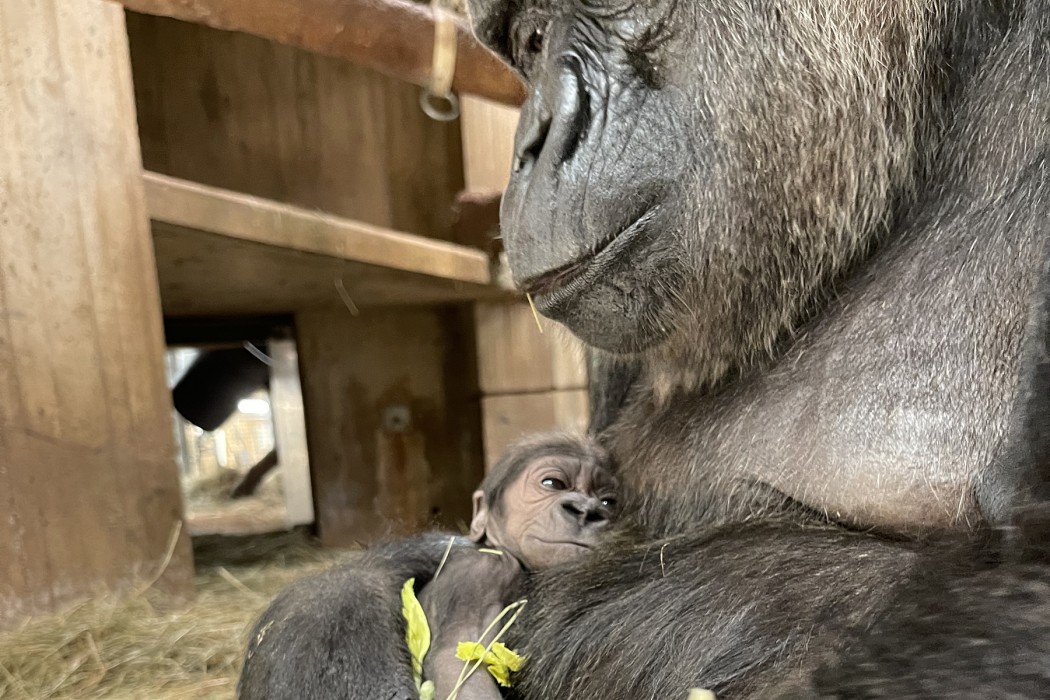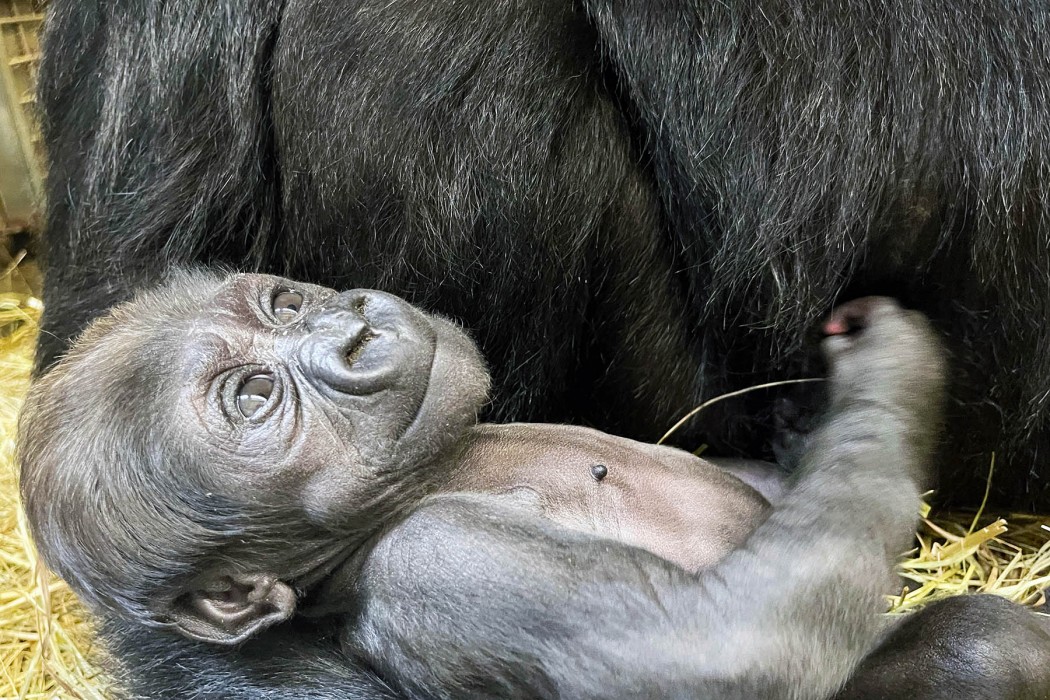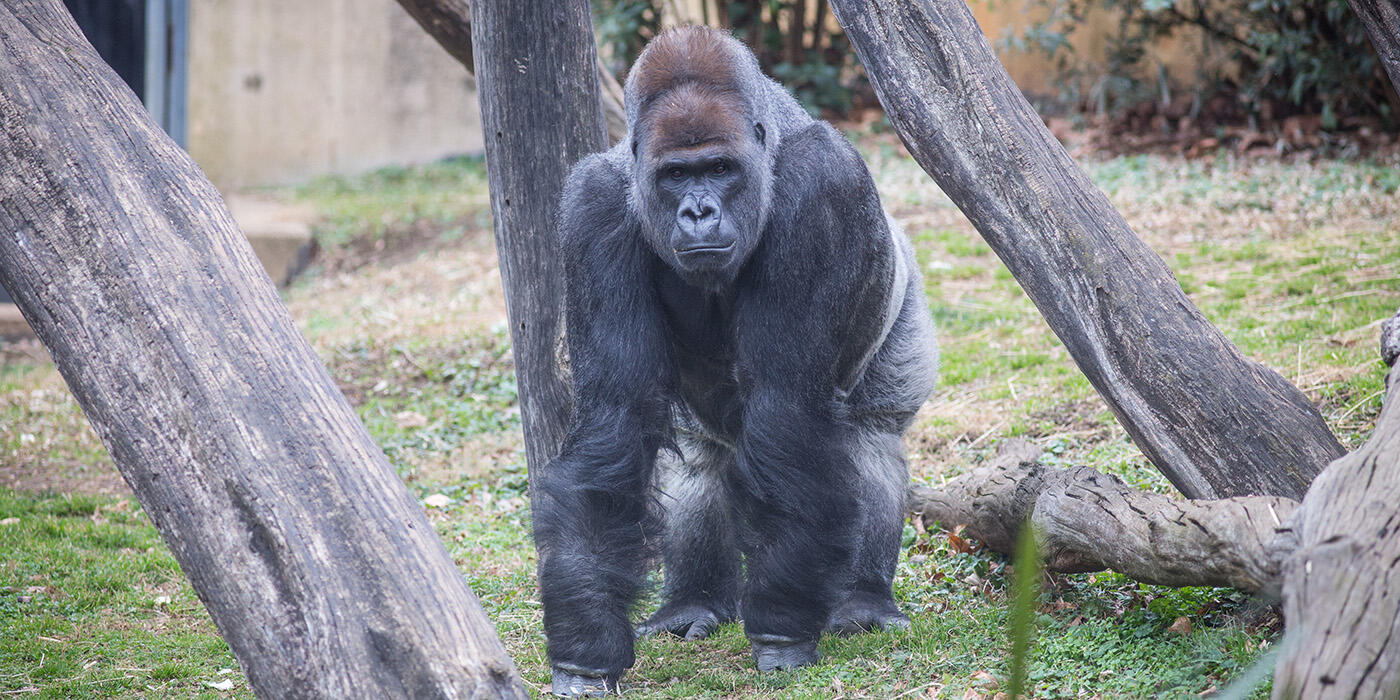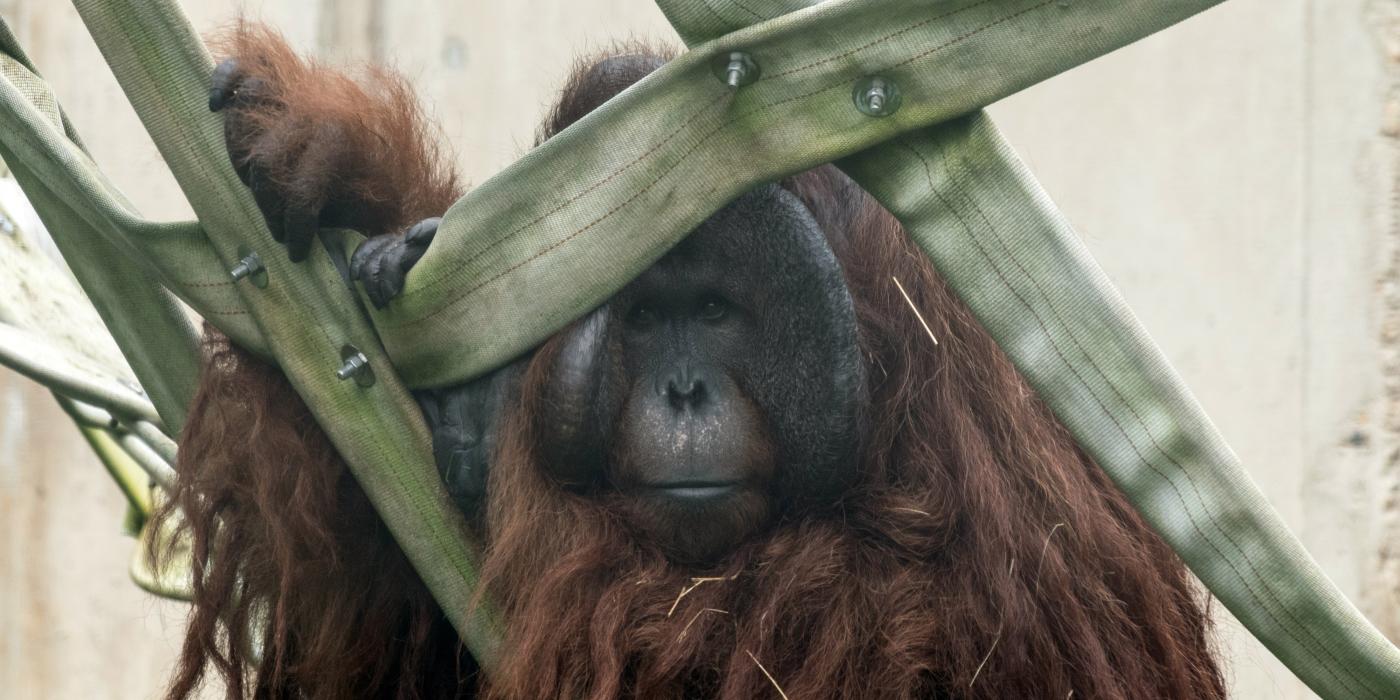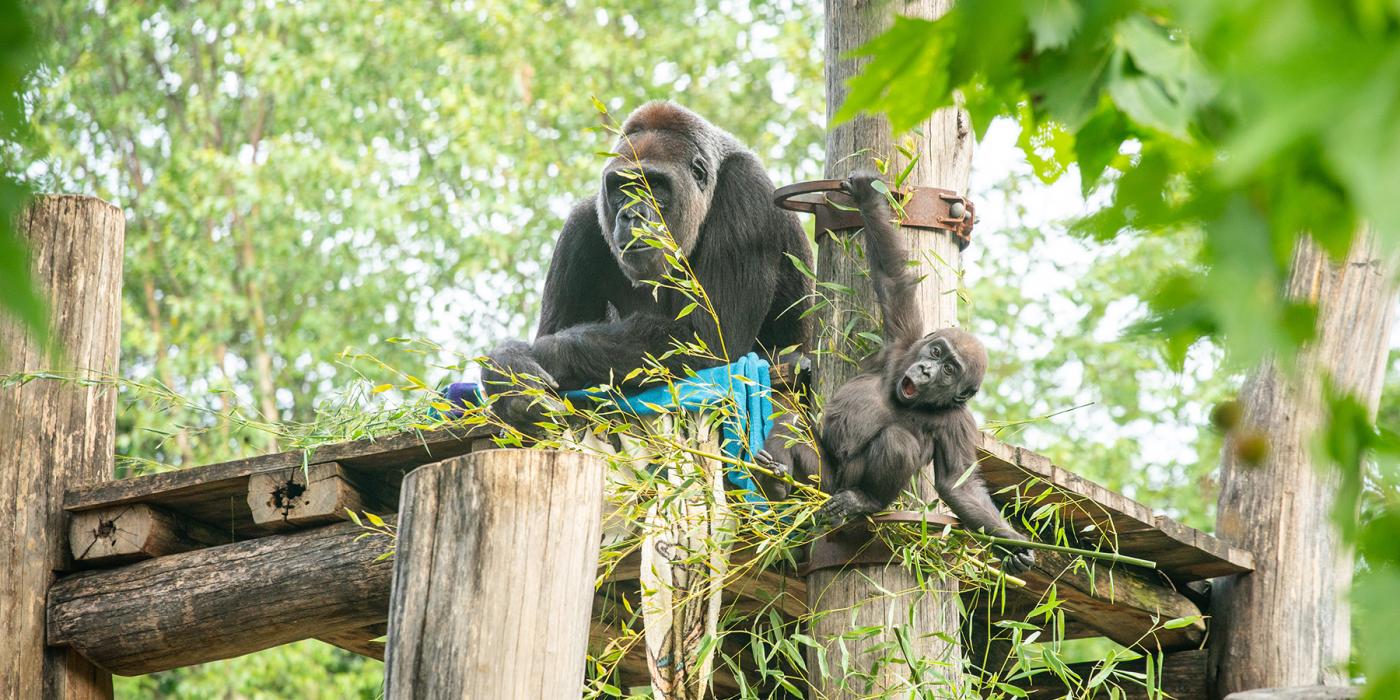#GorillaStory: Welcome, Zahra!
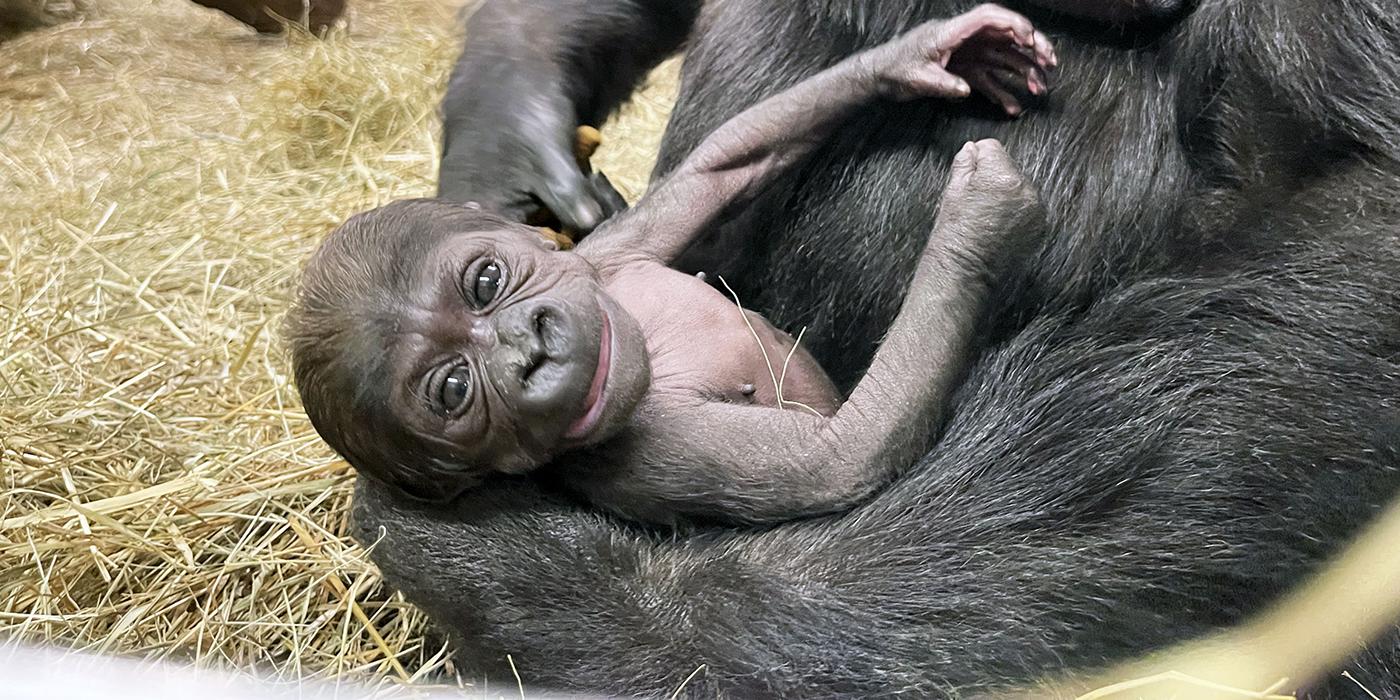
On May 27, the primate team was thrilled to welcome another baby western lowland gorilla to our troop! Recently, she received her name—Zahra (“beautiful flower” in Swahili)—following a public vote. Our now 4-week-old infant is doing great, nursing well and clinging tightly to her mother, Calaya. Because she spends much of her time sleeping and nursing, we don’t know her full personality yet. From what we have observed, she seems very sweet and is curious about the world around her!
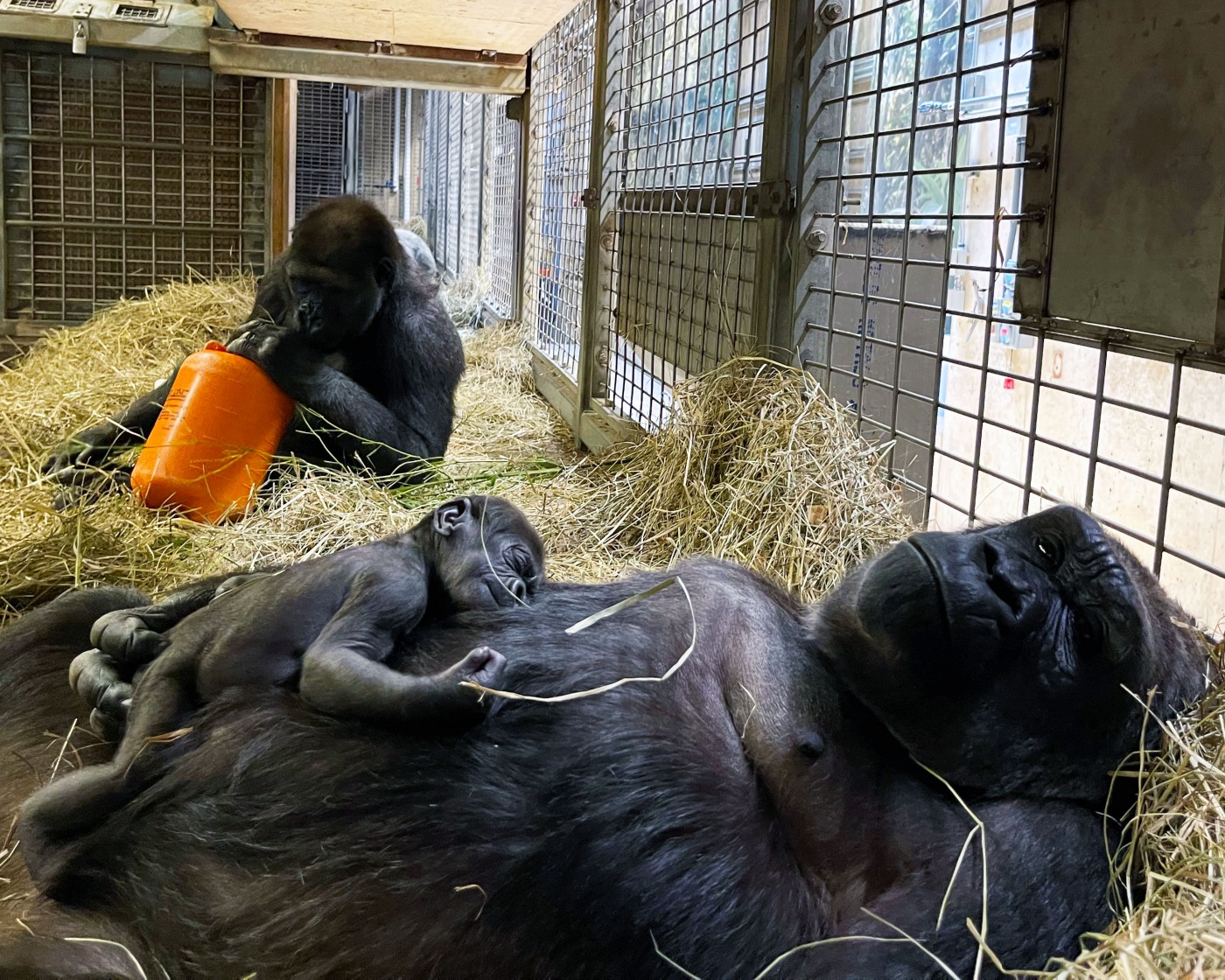
When I arrive at work early in the morning, Calaya is usually asleep. But Zahra is wide awake, bright-eyed and taking in her surroundings. When mom wakes up, she snuggles and affectionately pats her daughter. It’s a sweet and quiet moment, in the dark, before the Zoo opens and the crowds arrive.
After they wake, the gorillas forage for breakfast. They receive a variety of browse (fresh tree trimmings), leafy greens, hay, vegetables, fruits and primate chow. Usually, Zahra ends up being covered in whatever Calaya is eating, especially when alfalfa hay and celery leaves are on the menu!
When Zahra’s older brother, Moke, was born five years ago, Calaya often chose to spend time away from public view. One of her favorite places to rest was the chute that connects their indoor and outdoor habitats. This time around, she spends more time on exhibit and seems more relaxed and comfortable overall. Baraka, Zahra and Moke’s father, is a great protector and keeps a watchful eye over his troop!
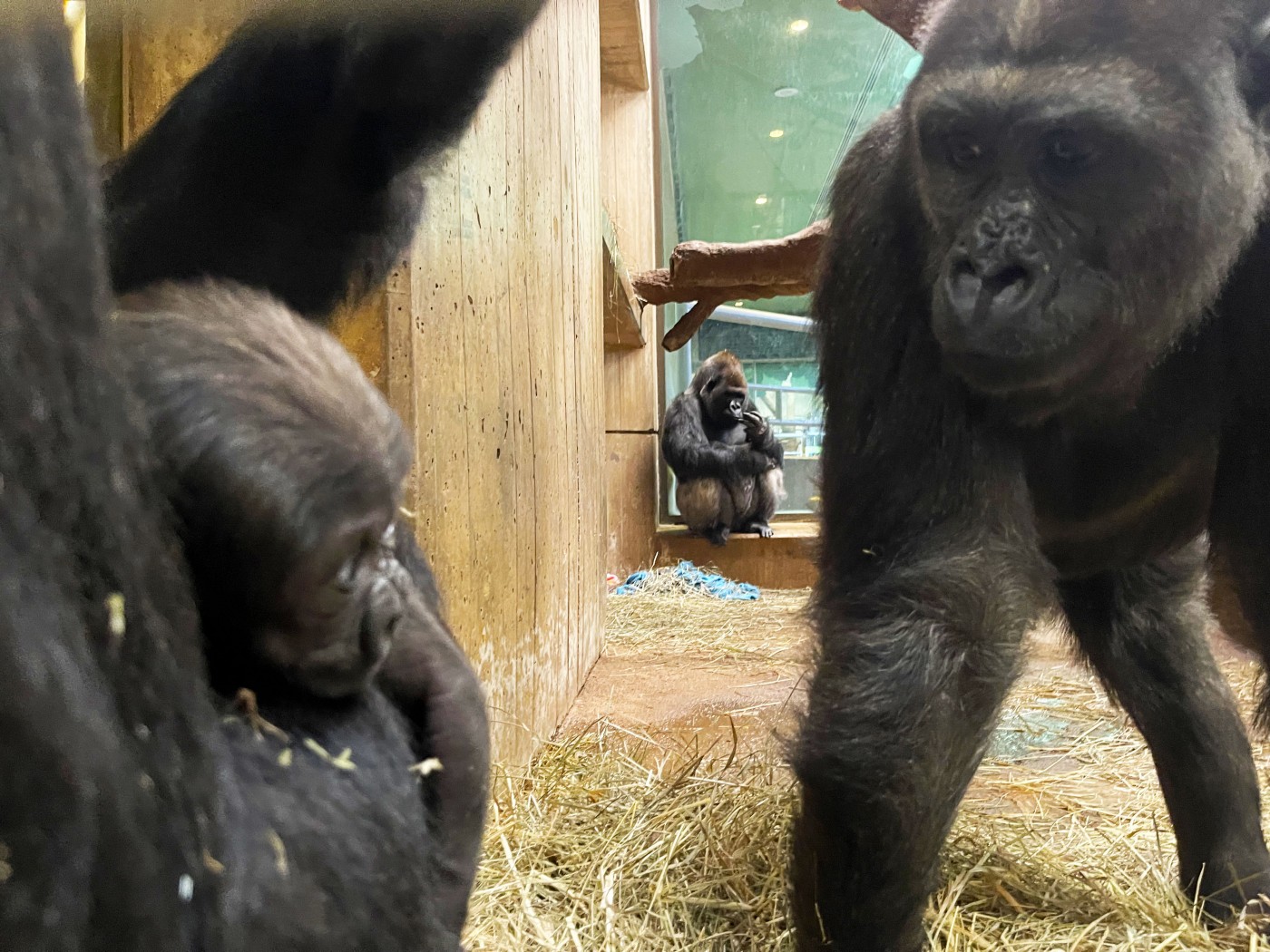
Even with baby Zahra in tow, Calaya continues to participate in our operant conditioning training program—on her terms, of course. During training sessions, we ask the gorillas to do behaviors that help us monitor their health. These include presenting various body parts for inspection, stepping on a scale and receiving injections. Calaya is a pro at this training, but because she tends to hold Zahra on her right, she has been hesitant to present her right side to keepers. Interestingly, she did the same thing with Moke when he was about Zahra’s age! We anticipate she will be more willing to do those behaviors once Zahra is more independent.
Zahra’s arrival has been an adjustment for Moke, who seems to miss being the center of attention. Moke doesn’t quite know what to do now that all eyes—and especially mom’s—are not on him. Over the past year, he and Kibibi haven’t been playing as much as they used to when they were younger. Now that he’s fishing for attention from the other troop members, Kibibi will take one for the team and play with him.
Moke is curious about his little sister and tries to touch her from time to time. Calaya allows him to get close but is vigilant. Sometimes, she will bark softly or push Moke’s hand away.
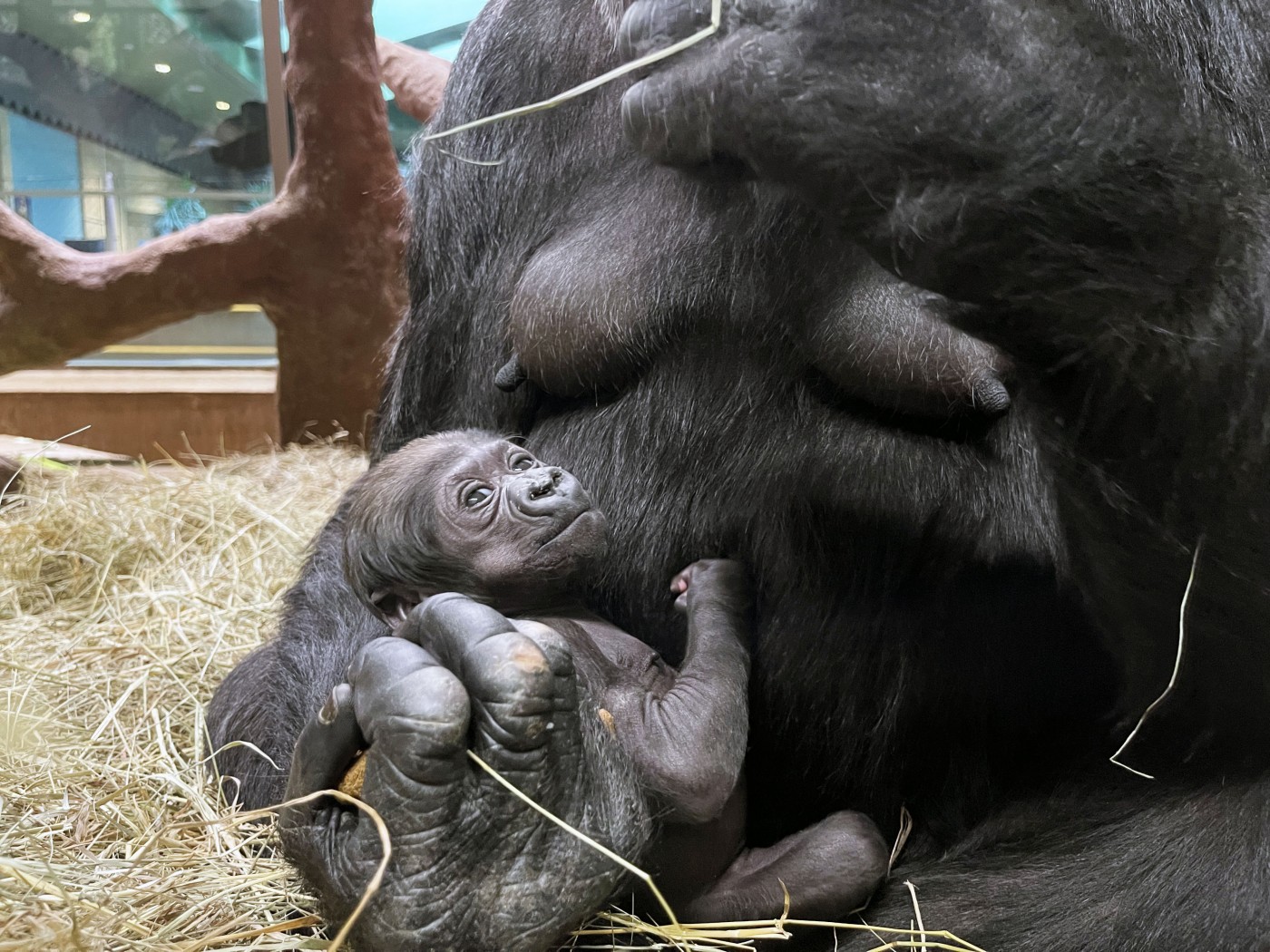
As the days go by, Moke is growing up. He has had to become a “big boy” and sleep in his own nest instead of with mom. Occasionally I find him curled up next to her in the morning. But, for the most part, he sleeps by himself. I am still unsure if he builds his own nest or if he steals one that Kibibi or Mandara have made!
The day Zahra was born, the whole troop was curious about the new addition to the family! Kibibi, especially, followed Calaya around the habitat and was able to see Zahra up close. I have not seen Mandara show much interest in Zahra, but that may change in the coming weeks. For now, Mandara enjoys being able to grab enrichment items while Calaya is moving a little slower and walking on three limbs while carrying Zahra.
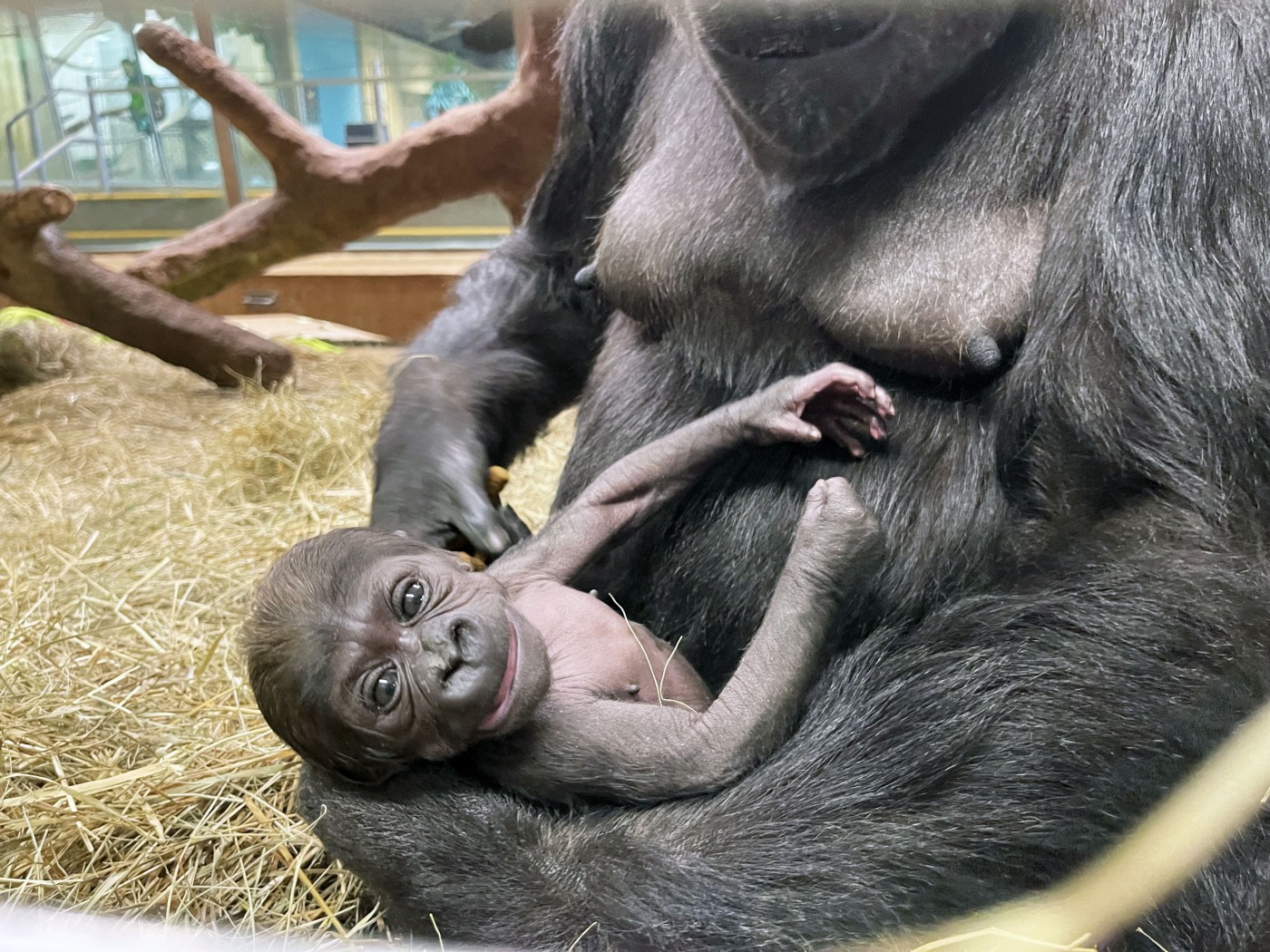
If you are planning a trip to see Zahra, I recommend visiting early in the morning when she is most awake and alert. She hangs tightly onto mom, and Calaya takes her on many adventures! On nice weather days, the gorillas have access to the outdoor habitat. Often, Calaya chooses to spend time on or near the climbing structure. Indoors, one of her favorite hangout spots is the hammock. Calaya occasionally brings Zahra over to the windows, too, which always draws a big crowd!
Want more #GorillaStory updates? Follow the latest news about our western lowland gorilla troop here.
Related Species:
